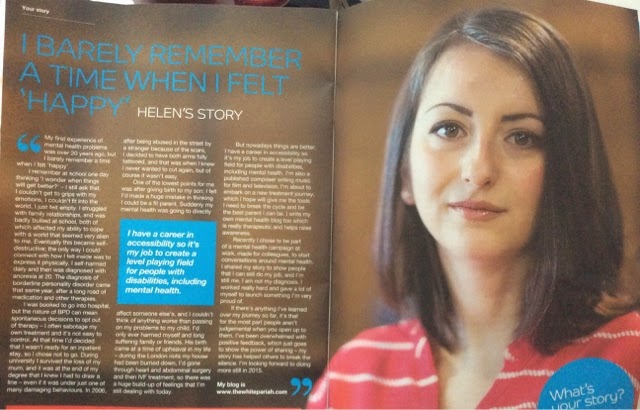The no makeup selfish
There are many parallels between the recent ‘no makeup selfie’ for breast cancer and the various issues of the disability rights movement – the criticism of charities who fund research into cures for various diseases is that they use photos of children who are afflicted with said disease to get the sympathy vote, and in turn, raise more money. This reinforces the message that disability is undesirable, pitied and something to be afraid of. Most people never think beyond the obvious. Others take it to the extreme. There is little room for anyone who believes that being disabled isn’t necessarily bad, but that if we can cure people we should. I believe it is possible to do both, but that makes me somewhat of a pariah. For me, the no makeup selfie represented a challenge; my feminist values vs. my deeply ingrained self consciousness. I don’t wear makeup in my daily life, yet somehow a photo, being a permanent record, is more of a big deal. My psyche fights itself over this regularly. Aside from all the practical reasons I no longer wear makeup – it stings my eyes for one – there are a multitude of reasons stemming from what I believe in. As a feminist I refuse to be defined by my appearance, and I refuse to plaster chemicals on my face when men do not. As a mother, I refuse to waste precious time doing so. As a 30-something-year old woman, I still feel that pang of sadness and longing for my youth when I see a photo of myself with rapidly greying hair and the trademark purple eye bags of mothers the world over. I’ve always been spotty too. These feelings are unwanted, but to pretend they are not there would be to lie. How to resolve this? Let’s think about it – why are only women taking action to fight breast cancer? Men get it too after all, and women are often the partners of men. How about we start to tackle the issue of why anyone would think that not wearing slap is an achievement worthy of sponsorship? I did my selfie, I made sure I took it from a ‘good angle’. I’d like for future generations of women not to.

Comments